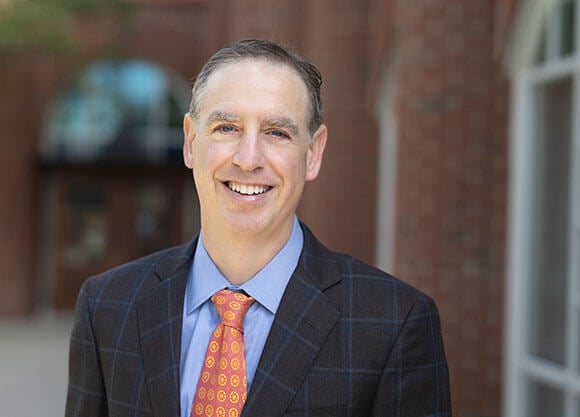
Quinnipiac Poll to offer unique perspective to students in courses throughout university
February 22, 2022

February 22, 2022

Students enrolled in School of Business, School of Communications and College of Arts and Sciences courses are spending the semester diving into the data analysis, market opinion research and reporting techniques of the Quinnipiac Poll.
"I’m very excited that students will be able to receive real-time, hands-on experience as they explore the world of data and learn how to analyze and effectively use it," said Doug Schwartz, associate vice president of the Quinnipiac University Polling Institute. "The Quinnipiac University Poll is collaborating with Provost Debra Liebowitz and Quinnipiac professors to provide students with signature curriculum preparing them for the workforce of tomorrow. With data being used in just about every profession, this integrated experience will offer students critical skills and insights into how to utilize public opinion research in their chosen fields."
The inspiration for the collaboration came from President Judy Olian, Schwartz said.
"She wanted to find a way for the Poll to enrich our students’ academic experiences,” he said. "I am pleased to work with our faculty to continually find new opportunities for hands-on learning experiences."
The collaboration is a unique opportunity for the students, Schwartz noted. Instead of just studying how polls operate, Quinnipiac students now have an opportunity to experience it first-hand. Schwartz, who came to Quinnipiac in 1994, has led the unrivaled growth of the Poll from a Connecticut poll to one of the most respected polls nationally and internationally.
“Polls more than ever are part of our public life,” said Scott McLean, professor of political science. “Yet, most citizens cannot easily distinguish between a reliable scientific poll and unscientific surveys that are really marketing or political persuasion in disguise.”
Leveraging the extensive expertise of the Quinnipiac Polling Institute, the course integrations will promote students’ data literacy by honing their skills in distinguishing between polling myths and polling realities, McLean said.
"We're proud to offer students a behind-the-scenes look at how a national poll operates, that is something that other students will not get at any other university in the country," Schwartz said. "It's as hands-on as you can get."
Since the Poll's inception, students have played a role in the organization as survey interviewers — but this collaboration gives students an unprecedented look at its operation.
"Students will learn why we are polling in a certain state and why we are choosing certain topics," he said. "Our students are getting real-world experience and insight."
The courses will emphasize how groups and diverse identities affect public opinion on global warming, vaccine hesitancy, abortion, intolerance, partisan polarization, among other issues.
“The best way to combat the myths surrounding polls, is for our students to have a practical experience designing polls and working with polling data, with the help of the experts at the Quinnipiac Poll,” said McLean. “No other university can offer students resources, experience and level of expertise quite like this. We don’t expect to turn our students into pollsters. Our goal is to help students become enlightened citizens who are life-long astute, data-literate consumers of polls, no matter what profession they enter.”
Schwartz noted that he and his team will share all the details that are involved in preparing for, conducting and sharing poll information — as well as all the different checks to make sure the results are accurate.
"Polls are under the public's microscope more today than ever and so it's the perfect time to shine light on how they are conducted — and for future journalists, data analysts and news consumers to understand what goes into them," he said.
Quinnipiac Today is your source for what's happening throughout #BobcatNation. Sign up for our weekly email newsletter to be among the first to know about news, events and members of our Bobcat family who are making a positive difference in our world.
Sign Up Now